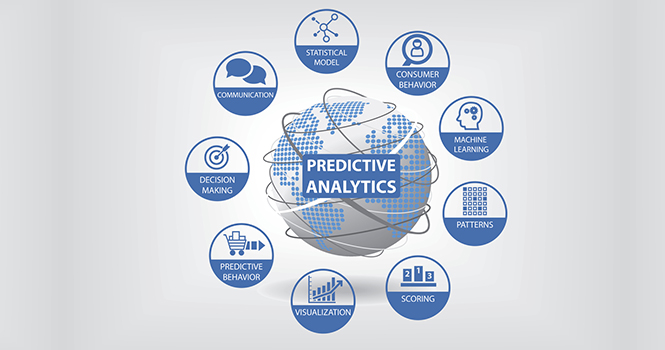Big data has proved to be a game changer in recent times in all sectors, and real estate is no exception. With insights from data analytics, investors in the real estate sector have increasingly made more informed and precise decisions, consequently minimizing risks while improving returns on investments.
The way properties have been bought, sold, managed, and valued has seen big changes because of big data analytics in real estate.
In this blog, we review how big data changes the manner in which people strategize for real estate investments, analyze markets, carry out property valuations, and manage risk with better insight into investor decisions.
We also examine current trends in big data in real estate as well as future opportunities in a data-driven future.
Read Also: Top 20 Real Estate Market Predictions for 2024/2025: What Should We Expect?
What is Big Data in Real Estate?
Big data is the huge amount generated from structured and unstructured data from so many sources. In real estate, big data would involve datasets derived from transaction histories, property values, mortgage rates, demographic information, social media, public records, and even sensor data from IoT devices.
What gives big data its real value for real estate, however, is the fact that from this sheer amount, insights can be mined through advanced, leading-edge analytical tools like machine learning and AI.
With the help of such tools, it becomes possible to process giant sets of data and perceive trends, correlations, and patterns that are just impossible to perceive with one’s eye.

Big data in real estate emanates from a number of sources, including:
- Public Records: Ownership, zoning, and transaction history of properties.
- IoT Devices: Sensors within smart buildings monitor energy use, occupancy, and needed maintenance.
- Social Media: Consumer sentiment around neighborhoods and housing trends.
- Real Estate Platforms: Sites like Zillow and Redfin gather large sums of user data based on property searches, preferences, and pricing.
- Government Reports: These involve population growth, employment rates, and economic indicators that affect the various real estate markets.
This information is analyzed in using data mining and other software related to real estate data visualization in order to present actionable insights.
Afterwards, predictive analytics can go ahead to forecast what happens next; this sentiment, through user reviews or market reports, can be assisted by NLP.
Growing Interest in Data-Driven Real Estate Decision-Making
Until recently, investment in real estate was intuitive and often hot-headed, developed from experience and shallow market research. Big data is shifting the course of the industry to informed decisions.
These days, investors create their strategy based on profound market analysis, predictive models, and big data trends in real estate to make better decisions about their investment.
For instance, a real estate company may analyze location intelligence information, monitoring such indicators as the level of criminality in certain areas, proximity to schools, and movement of traffic as a way of determining an area’s neighborhood potential.
Data-influenced decisions minimize risks as investors go for properties with a high propensity for growth and minor chances of devaluation.
How Big Data is Changing Real Estate Investment Decisions
a.) Enhancing Real Estate Market Analysis
Big data analytics has completely revolutionized the analysis of real estate markets. Historically, market analysis was performed with a limited historical database, whereas big data real estate market analysis permits real-time insights into much more accurate and actionable information.
Investors can utilize tools such as Real Estate Data Visualization Software to monitor neighborhood trends, predict the demand shift in specific properties, and predict market corrections.
This might include data mining to uncover a micro-trend in a neighborhood that would be showing growth-for example, new construction, increased business activity, or even demographic changes.
This edge in using the most current and complete information gives them an advantage over competition that used incomplete or outdated information in arriving at their decisions.
b.) Identifying Investment Opportunity
The biggest benefit of big data is that it highlights real estate investment opportunities. Big data analytics will also allow investors to predict the rise of up-and-coming markets in real estate, track the performance of property types, and indicate locations where demand is predicted.
It might also show, for example, in which neighborhoods real estate prices will most likely appreciate as infrastructure is developed to include new transit hubs or retail centers.
This enables investors to acquire the properties prior to the prices driving up and thereby maximize their ROI.
c.) Real Estate Pricing Optimization
Correct pricing in real estate is very critical, and big data enabled superior pricing optimization models. Big data real estate pricing optimization tools can ingest vast volumes of historical sales data, market trends, or even consumer sentiment in social media to suggest the optimal price of a property.
Such data-driven pricing strategies eclipse traditional pricing methods, considering a much broader spectrum of factors, hence allowing more competitive and accurate pricing.
Big data sentiment analysis in real estate, for example, allows investors to track consumers’ feelings toward property or a certain neighborhood. Positive sentiments could indicate demand, and negative sentiments serve as warnings on areas to avoid or properties needing major improvements to sell.
Big Data Application in Real Estate
Predictive Modeling for Property Valuation
Predictive modeling is one of the mighty usages of big data in real estate. Predictive models use historical data and advanced algorithms to project forward in time what future property values will be, thus providing the investor with a more thorough understanding of the property’s potential over time.
For instance, big data real estate predictive modeling can consider numerous key variables such as past sales prices, local economic conditions, interest rates, and consumer behavior in predicting the appreciation or depreciation of the property.
 Image source: RISmedia
Image source: RISmedia
In turn, investors will be able to make well-informed decisions in long-term investments with a reduced risk of uncertainty that normally characterizes speculation in property.
Various case studies have given very promising results of predictive modeling. In fact, a recent 2020 research study from the National Association of Realtors, commonly referred to as NAR, estimated that predictive models derived from big data analytics produced a 15% improvement in pricing accuracy over traditional methods.
Big Data and Risk Management
While real estate investment is intrinsically risky, big data has considerably improved risk management in this domain.
Big data can accurately predict the whole development tendency of economic elements, local market trends, and historical performance of properties to help investors move forward with confidence and reduce potential risks, such as economic downturns, tenant defaults, or other sudden devaluations of a property.
For example, data science in real estate can identify trends that indicate fraud; hence, big data real estate fraud detection has become an important tool to avoid costly mistakes. Also, the risk management systems can include environmental risks related to flood zones or seismic activities and have a whole picture of possible vulnerabilities.
These tools will enable investors to avoid properties with unrevealed risks and focus their efforts on safer, more promising opportunities.
Data-Driven Urban Planning
Large real estate applications have also transformed the concept of urban planning. Nowadays, trends in population growth, patterns of migration, and economic development are employed by planners to determine where to construct infrastructure, commercial centers, and housing developments. Real estate urban planning with integrated IoT data and smart city technologies is becoming increasingly common.
For instance, the data from IoT sensors on traffic flow can be used by town planners to determine and plan the ideal place for new commercial development. This amount of accuracy assists not only the developers but also ensures that the towns grow in a sustainable and organized manner, further enhancing the price value of properties at those places.
Key Advantages of Big Data Usage in Real Estate Investments
More Decision Making and Accuracy
On a more basic level, one of the biggest advantages that big data analytics bring to real estate can be seen in an improved decision-making process. Investors using such comprehensive data in real-time will offer much better predictive accuracy on market trends, property prices, and rental demand for better yields.
For example, investors used to rely so much on intuition or simple historical data. With big data real estate market analysis, a decision is now enabled with concrete data that minimizes the chances of costly mistakes.
Data Enhances Property Management
Besides investment decisions, big data real estate property management is also one area that has benefited a great deal. Equally, property managers can use this data to anticipate the needs of tenants, reduce vacancy rates, and schedule preventive maintenance more efficiently.
It can, for example, be implemented in smart buildings where IoT devices installed in smart buildings provide real-time notifications over energy usage or any malfunction, which enables the managers to take early action before it becomes an expensive problem. Predictive maintenance can greatly reduce costs and enhance tenant satisfaction.
Customer Segmentation and Marketing
Big data also plays an important role in real estate marketing. This particular aspect-things like buyer behavior and preference, demography-actually enables fine-tuning of real estate data-driven marketing strategies towards specific customer segments.
For example, such data will indicate which demographics are more likely to invest in a certain kind of property and thus will enable marketers to create tailored campaigns that best resonate with potential buyers.
Apart from that, the data-driven approach in the strategy of customer experience in real estate involves better engagement with the tenant or buyer through recommendations and services, considering personal preferences based on insights derived from the data.
In this process, it improves the chances of more engagement and satisfaction, hence increasing the probability of sales or lease for a longer period.
Big Data’s Role in Real Estate Valuation
How Big Data Enhances Accuracy in Property Valuation
Valuation of real estate has conventionally been a very tedious task, and big data real estate valuation tools have enhanced the level of accuracy considerably.
Integrating multi-sourced data, such as market trends and recent sales and even social media sentiment, the models for valuation will hence come up with more accurate estimates than can be attained by traditional methods of appraisals.
For example, an investor willing to purchase a commercial property can make use of big data in estimating footfall, competition in that area, and changes in the demographic profile in locations nearby.
Big data real estate sentiment analysis can also be of help in the analysis of consumer sentiments about a location or property, thus providing an added insight into probable demand in times to come.

Real Estate Data Integration for Valuation
Accurate valuation, in fact, is all about effective integration of real estate data. It involves a combination of data from property records, zoning regulations, and market analytics.
Data warehousing and enrichment tools guarantee that all relevant data is consolidated and analyzed together to give a holistic view of a property’s true value.
Real Estate Big Data Trends and Future Outlook
Big data in real estate analytics indeed has a great future, with a number of emerging trends that promise to change the face of the industry. Machine learning and artificial intelligence are increasingly used to develop smarter, more predictive models.
These technologies can analyze enormous datasets much quicker than any human would be able to do, finding insights that might have otherwise gone missing.
Also, blockchain technology is extended to real estate data governance, allowing even more secure and transparent property transactions.
Blockchain thus allows for the real-time verification of the property records, helping to minimize fraud and assist in efficiency with the buying and selling process.
Must Read: Blockchain in Real Estate: How Smart Contracts Are Revolutionizing Property Transactions
Big Data in Smart Cities and Real Estate Development
In the coming years, the use of big data in smart cities and urban development is likely to increase even further because cities will continue to be wired via the IoT.
Big data real estate smart cities improve infrastructure, reduce energy consumption, and develop better ways of planning cities based on the use of data derived from connected devices, making their living environments even more appealing, increasing property values and investment potential.
Real estate data visualization tools will also become more advanced, enabling investors and developers to mark real-time updates from traffic flows to environmental conditions, further enhancing decision-making.
Challenges of Big Data Implementation in Real Estate
Data Privacy and Governance Concerns
Data privacy is one of the most important challenges in adopting big data for real estate. Large amounts of personal and transactional data are involved, which always carries some risks of data breaches or misuse.
Real estate data governance policies need to be enacted so sensitive information stays confidential and regulated by the law, such as GDPR.
The real estate data privacy laws will also be very crucial and vital for investors or real estate professionals, particularly in international markets.
Data Quality and Cleaning
Data quality is another problem concerning the reliable nature of data analyzed. Poor data quality may result in incorrect insight, which may affect the quality of investment decision-making. Data cleaning processes therefore form one of the integral parts of any real estate dataset to clear errors, inconsistencies, and outdated information from datasets.
Case Studies: Big Data in Real Estate – Applied Successfully!
A prime example of big data applied in real estate is firms like Zillow and Redfin, which employ gigantic volumes of data to provide exact property valuations and forecasts of market trends. These platforms study consumer behavior and regional statistics to define more clearly for investors where and when to invest.
For example, big data powers the super-popular valuation tool Zillow’s Zestimate, which projects – with surprising accuracy – a property’s market value to give consumers a truer sense of a home’s value.
Image source: LinkedIn
Big Data Companies Leading the Real Estate Revolution
Large and small companies alike are at the cutting edge in driving innovation in big data real estate analytics. Startups like HouseCanary and Reonomy specialize in advanced data analytics platforms for real estate professionals.
These companies provide investors with tools ranging from top-down market analysis to predictive modeling to support smarter, data-driven decisions.
How to Get Started with Big Data in Real Estate Investments
Tools and Platforms for Real Estate Data Analysis
This goes for all investors who wish to apply big data real estate investing strategies.
Be it Reonomy, CoreLogic, or HouseCanary; there are a variety of tools available that provide data analytics solutions specific for the marketplace on trends of the market, property valuations, and investment opportunities with ease of access and evaluation for an investor.
Steps to Implement a Data-Driven Real Estate Investment Strategy
- Data Collection: Gather data from diversified sources such as public records, market reports, and IoT devices.
- Analytics Tool Implementation: Avail platforms like HouseCanary to analyze the data and deliver insights. Predictive
- Modeling: Allow the analytics to predict forward trends in the future and property value. Make all investment decisions based on insights from the data, not on intuition or traditional methods.
- Monitor and Adapt: Continuous data monitoring to adjust your strategies as the market evolves.
Conclusion
Big data are not an option in real estate investment decisions but an essential ingredient which one needs to have to remain competitive.
Big data analytics in real estate provide better insight, better valuation, and improved risk management to investors. As this industry moves on, those using data-driven strategies will be in a much better position to win in an increasingly complex market.
Investors should not be lethargic to these tools of staying ahead of the trends to maximize returns with the least risks. A data-driven approach helps the professional in real estate make informed decisions for long-term success.
Frequently Asked Questions (FAQ)
What is Big Data in Real Estate?
Big data in real estate refers to the use of large datasets and advanced analytics to make better investment decisions, predict market trends, and improve property management. It includes everything from property valuations to customer segmentation.
How Does Big Data Improve Real Estate Investments?
Big data helps investors make informed decisions by analyzing trends, predicting property values, and assessing risks. It also helps in identifying investment opportunities and avoiding potential losses.
What Are Common Big Data Applications in Real Estate?
Common applications include predictive modeling for property valuations, risk management, customer segmentation, urban planning, and data-driven marketing strategies.
Can Big Data Predict Property Prices?
Yes, predictive models using big data can forecast future property prices by analyzing historical data, market trends, and economic indicators, providing investors with more accurate projections.
What Tools Are Used for Big Data in Real Estate?
Popular tools include Reonomy, CoreLogic, and HouseCanary, which offer real estate analytics, market trends, and predictive models for property investments.
What are the Biggest Challenges in Using Big Data for Real Estate?
Challenges include data privacy, quality, and governance. Ensuring accurate data cleaning and integration is crucial to avoid misleading insights.
How Does Big Data Affect Urban Planning?
Big data allows urban planners to make informed decisions by analyzing population growth, traffic patterns, and economic trends, leading to more efficient and sustainable city development.
How Can Real Estate Investors Get Started with Big Data?
Investors can begin by using data analytics platforms, collecting relevant market data, and incorporating predictive models into their investment strategies to make data-driven decisions.
Why is Data Privacy Important in Real Estate?
With the vast amount of personal and transactional data being collected, protecting this information is crucial to maintain trust and comply with privacy regulations.
Please Also Read: The Future of Sustainable Housing in Real Estate: Are You Missing Out on the Latest Breakthroughs 2024?






